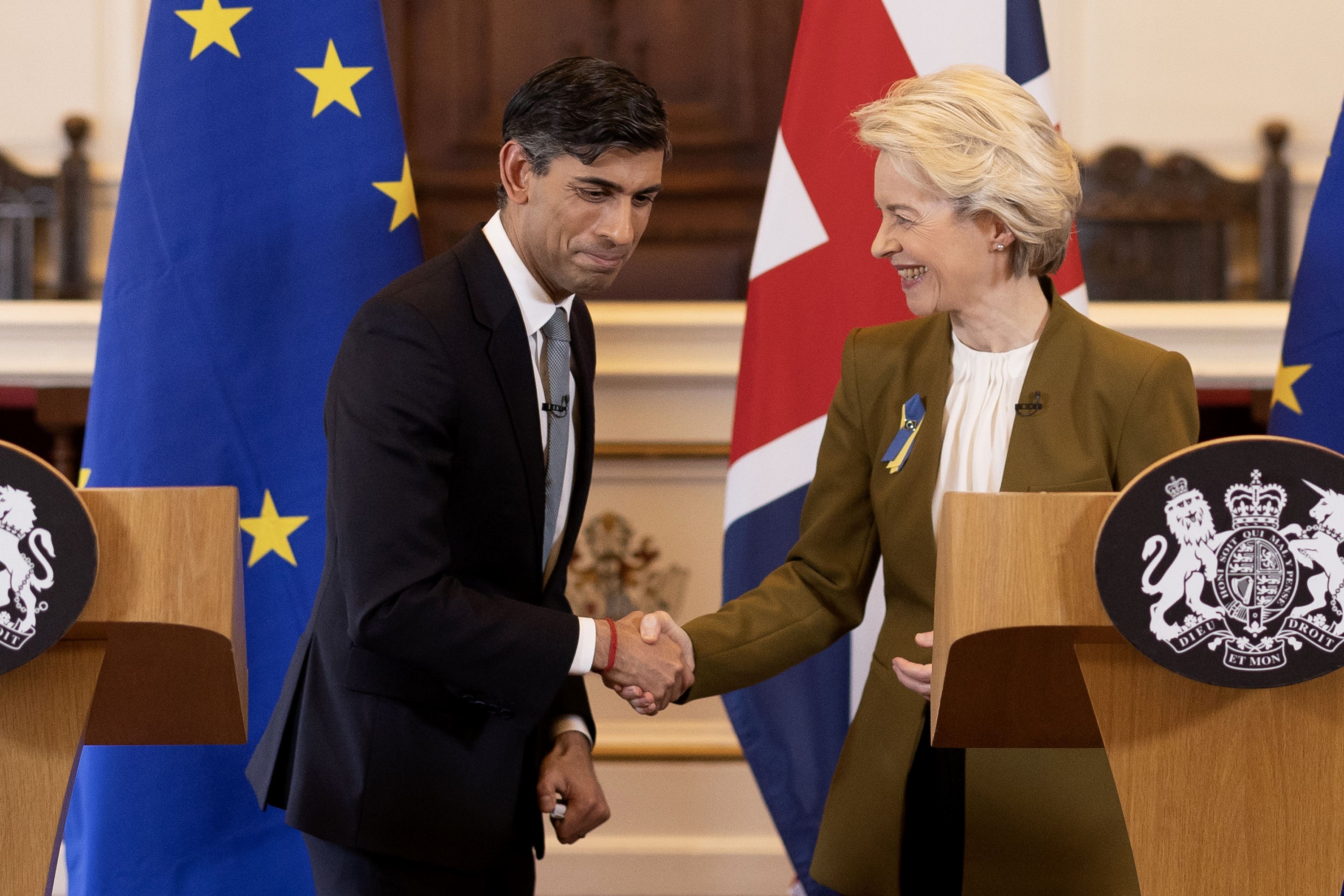Majority in NI think framework could bring economic benefits, poll suggests
The opinion poll was carried out on behalf of researchers at Queen’s University in Belfast.

Your support helps us to tell the story
From reproductive rights to climate change to Big Tech, The Independent is on the ground when the story is developing. Whether it's investigating the financials of Elon Musk's pro-Trump PAC or producing our latest documentary, 'The A Word', which shines a light on the American women fighting for reproductive rights, we know how important it is to parse out the facts from the messaging.
At such a critical moment in US history, we need reporters on the ground. Your donation allows us to keep sending journalists to speak to both sides of the story.
The Independent is trusted by Americans across the entire political spectrum. And unlike many other quality news outlets, we choose not to lock Americans out of our reporting and analysis with paywalls. We believe quality journalism should be available to everyone, paid for by those who can afford it.
Your support makes all the difference.Almost 70% of voters in Northern Ireland think the Windsor Framework could bring economic benefits to the region, an opinion poll carried out on behalf of Queen’s University in Belfast has suggested.
The polling also indicates that two thirds of people believe that the Northern Ireland executive should be re-established following the deal between the EU and the UK.
The framework was unveiled in February as a means of adapting the post-Brexit Northern Ireland Protocol to deal with trade disruption between the region and the rest of the UK.
The deal has been formally signed off by the UK Government and the EU.
However, the DUP, the largest unionist party in Northern Ireland, has expressed concerns about the framework and has shown no sign of returning to powersharing at Stormont.
The polling, carried out by LucidTalk on behalf of researchers at Queen’s, indicates that 69% think that the framework could bring economic benefits for the region, and 66% think the executive at Stormont should return.
Some 48% of respondents who identified as a “strongly unionist” do not see potential economic benefits from the framework.
Seven in 10 of those who identify as “slightly unionist” see potential benefits, as do around nine out of 10 nationalists and others.
The poll suggested that 72% of women and 60% of men wanted to see the powersharing institutions return.
The report was compiled by Professor David Phinnemore, Professor Katy Hayward, and Dr Lisa Claire Whitten and is the eighth in a series of opinion panel polls conducted for Queen’s researchers as part of a three-year project funded by the Economic and Social Research Council (ESRC).
Polling was conducted from March 18-21, three weeks after the UK government and the European Commission announced the deal. The results of the polling are from a weighted sample of 1,201 respondents.
The poll also indicated that 23% of respondents will only vote for candidates in the next Assembly election who are favour of scrapping the protocol and/or the Windsor Framework.
It suggested that 25% would have preferred the Northern Ireland Protocol Bill to the Windsor Framework and 43% of respondents agree that the Stormont brake provides an appropriate means for MLAs to influence changes to EU law.
Just over a third of respondents (35%) think that the Windsor Framework poses a threat to Northern Ireland’s position in the UK.
Professor Phinnemore said: “With the Windsor Framework, more voters in Northern Ireland have become accepting or supportive of the protocol.
“A clear majority believe genuine efforts have been made to address concerns raised and see potential economic benefits.”
Professor Hayward, from the School of Social Sciences, Education and Social Work at Queen’s, commented: “The new UK-EU deal has provoked no discernible movement from those who previously wanted the protocol scrapped altogether.”